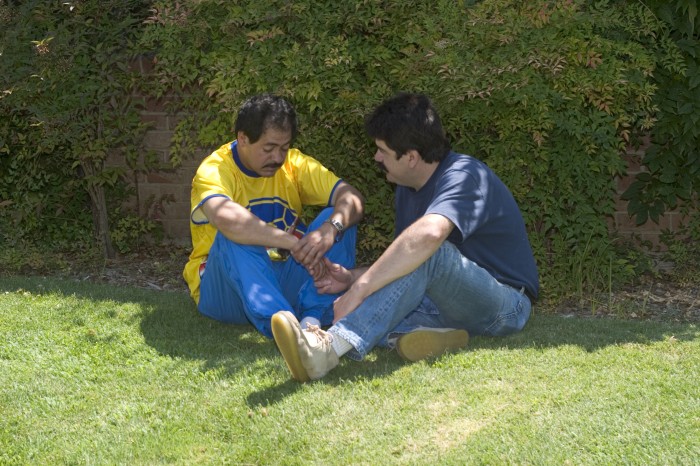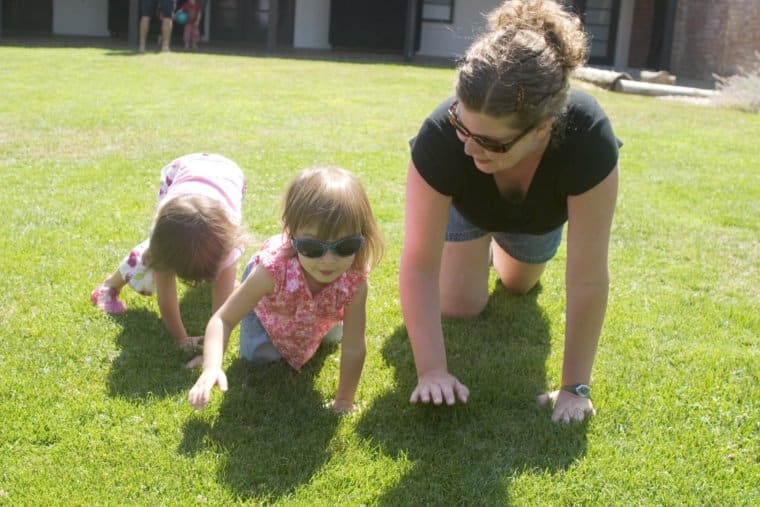Being a parent challenges us right down to our bones. Our children evoke deep tenderness and delight and bring out an energy and protectiveness in us that we didn’t know we had. But the realities of sleep deprivation and the anxiety of unfamiliar roles and tasks give rise to another powerful set of emotions, as we continually adjust to the lifestyle of being a parent, from tantrums to dating to college entrance exams.
Through all of this, we may find ourselves regularly revisiting the intense emotions of our own childhoods. We may feel fierce devotion, maddening anger and paralyzing fear in turn—or all at once.
These intense pressures of being a parent can bring out the worst in us,
making us impatient, irritable and thoughtless at the very moments we are trying our hardest to be good parents. Careless, harsh or unhelpful things our parents said to us as children may come spilling out of our mouths: “Because I said so!”
Much of the latest research in neuroscience confirms there is a biological basis for the strong emotions we all feel. Because of the way our limbic brain and memory work, our experience as a parent is forever connected to our experience of having once been children ourselves.
Understanding this connection allows us to take good care of ourselves and to do the things we need to do, such as letting go of old stressors. Then, when our children experience their own strong emotions, we are better equipped to be there for them. In our work as Certified Instructors at Hand in Hand Parenting, we encourage the use of Listening Tools as a way to help parents be heard and to improve their ability to fully understand their children.
Why do we find being a parent so challenging?
In our devotion to our children, we may set high standards for the level of care we give them—standards that are incredibly difficult to meet. We may think we are supposed to know how to parent, often telling ourselves things like, “My mother didn’t need a parenting class to raise me. I’m a smart person, why do I feel so clueless?”
But we need support. We need energy. We need time to talk, play, enjoy one another, solve problems in our families, share meals together, be neighbors and friends and learn new things. We need time to care well for ourselves and for our loved ones.
The times when children need our reassuring support and attention are often the most difficult for us. We may find their sudden outpourings of emotion overwhelming, uncomfortable or embarrassing. We may think because we are raising children in a “tough” world, we need to train them not to show such vulnerability or abandon.
We may have a low tolerance for our children’s feelings because we may have been threatened, ignored, shamed or punished when we tried to express the hurt we felt as children ourselves. Because those feelings were never heard, our children’s emotions trigger the heat from that backlog of hurt we’ve had to store and manage all these years.
How can you learn to handle the stresses of parenting?
Parents benefit greatly from having someone to listen to them as they talk about and release the emotional tension that builds up in their lives. Obtaining this attention for themselves allows them to provide emotional support to their children. Most of us were taught to keep feelings at arm’s length, or to keep them to ourselves. But expressing feelings is how people recover from the hard things, big and small, that happen to them.
Both children and parents need relationships that are safe enough to offer room for the unguarded expression of the feelings that are stored after frightening or challenging moments.
Children know how to offload stress. They try to use us as safe harbors.
Although conventional wisdom doesn’t yet reflect this fact, the crying, tantrums and out-of-control laughter that punctuate the lives of our children are important emotional outlets for them. Expressing their emotions at length helps children to make progress in their ability to tackle everyday issues with confidence and enthusiasm.
If getting ready to leave the house brings up feelings in a child such as “You always rush me” or “No one at park day likes me,” and their parent listens all the way through a good laugh, a vigorous tantrum or a good cry, a child will, over time, regain their sense of confidence.
The feelings that caused them to dawdle will have been shed, allowing the child to function more intelligently. This process works best if the adult can remain warm and calm, and get close and listen through these stormy upsets.
Children’s emotional challenges often become parents’ challenges, too.
The situations that are hard in our own parenting are most often the same ones that were hard in our childhoods. Memories and unconscious associations can stimulate the same circuitry in our brains that was active during difficult childhood moments.
For instance, if a parent grew up disliking math but was belittled for expressing feelings about it, it may be tough for them to listen to the feelings and experience of a child who is struggling with algebra. While feelings from long ago are running the show, we are emotionally disconnected from the present moment. It is more difficult for us to understand our children well or to respond with interest, kindness and a healthy mixture of love and limit-setting.
In their book Parenting from the Inside Out, How a Deeper Self-Understanding Can Help You Raise Children Who Thrive, Dr. Daniel Siegel and Mary Hartzell, M.Ed., say that when we are in a situation and feel angry, frustrated, confused or ashamed, but we aren’t exactly sure why, it is probably because of an implicit memory being stimulated.
Fortunately, research shows we can make our implicit memory explicit by reflecting and talking about our feelings and experience. We at Hand in Hand take this concept further and say that it is even more helpful to fully express any of the strong feelings we may have, not to our children, but to an accepting adult.
A Listening Exchange with another adult gives a parent the kind of safety that can result in positive change in the family.
 Exchanging Listening Time is a way for parents to address these emotional hijackings. It’s an opportunity for parents to locate the source of the emotions and do what children do to heal from upset: let the feelings show with someone who won’t be hurt by what we say and who has promised to listen and to care. Over time, this kind of support helps us untie those knots of tension in our experience that keep us from enjoying life with our children.
Exchanging Listening Time is a way for parents to address these emotional hijackings. It’s an opportunity for parents to locate the source of the emotions and do what children do to heal from upset: let the feelings show with someone who won’t be hurt by what we say and who has promised to listen and to care. Over time, this kind of support helps us untie those knots of tension in our experience that keep us from enjoying life with our children.
The most important thing we can do when we find ourselves upset by a particular issue, at a particular time of year or even a specific stage of our child’s life is to stop and take time to ask ourselves about those feelings.
In the Hand in Hand booklet Listening Partnerships for Parents, Patty Wipfler outlines specific questions you may want to explore when you suspect your past is interfering with how you’d like to see yourself behaving. The important thing is that you take the time to ask those questions and that you involve another adult whose care and attention makes you feel safe and heard. Then trade places and give your warmth and attention to the other person as they take time to explore their own issues.
These informal partnerships—we call them Listening Partnerships—provide a place for you to think out loud without inhibition or embarrassment. When you let your feelings show, say your truth or just blast out the tirade that may be brewing inside, you release the emotional tension built up around a problem or conflict.
Exploring your life as a parent while another adult offers respect, security and acceptance and gives you her full attention is a powerful experience. It provides you with a caring place to feel whatever emotions may not have been gently attended to, either while you were growing up or even last week. It can relieve the aloneness and much of the pain associated with the past hurt.
We parents work very hard to offer this kind of emotional care to our children. We also deserve and need this kind of loving support for ourselves.
Learn more in the online Hand in Hand self-guided class Reducing Parent Stress: Building a Listening Partnership.
To find a Listening Partner, along with a discussion group where. you can get answers and support 24/7, join the Parent Club Community

